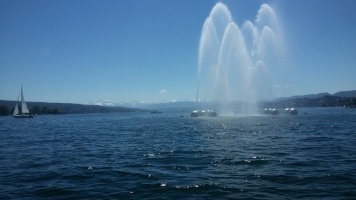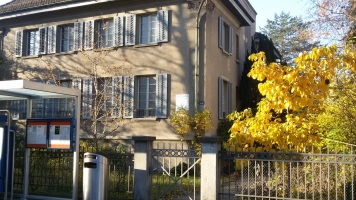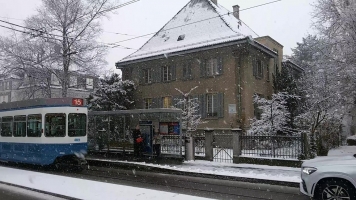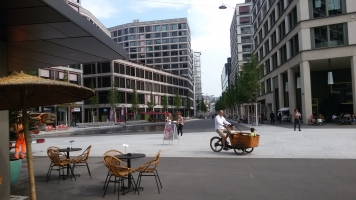Category Archives: Immigration Services
Appeal against the annulment of a simplified (facilitated) naturalization
According to Art. 15 of the Universal Declaration of Human Rights of 1948, everyone has the right to a nationality. Nationality cannot be arbitrarily revoked.
Declaration of nullity of a naturalization and revocation of Swiss citizenship. According to Art. 36 of the Federal Act on the Acquisition and Loss of Swiss Citizenship (Citizenship Act, BüG; SR 141.0), a naturalization can be declared null and void up to eight years after naturalization has taken place. The procedure for the annulment of naturalization is always initiated when the SEM is notified of sufficient evidence of suspicion. It is directed against all naturalized or re-naturalized persons residing in Switzerland or abroad.
The annulment of naturalization can be appealed before the Federal Administrative Court within thirty days of the date of notification of the decision.
Topics: Nullification of a naturalization, Nullification of naturalizations, Appeal, Appeal, Appeal, Counsel, Facilitated naturalization annulment, Naturalization procedure, Naturalization appeals, State Secretariat for Migration SEM, Questions, Suspected sham marriage, Fake False Bogus Fictitious Fraudulent marriage, Swiss passport revoked . . . .
Appeal and complaint against rejected application for naturalization
Arbitrary denials of naturalization violate international law.
Naturalization Switzerland:
Foreign nationals may acquire Swiss citizenship if they meet the legal requirements for naturalization. Swiss citizenship can be acquired by descent, adoption or by ordinary or simplified naturalization. There are different naturalization procedures. There is ordinary and simplified naturalization, the re-naturalization of former Swiss citizens and the renunciation of citizenship.
Any person who has been wrongfully denied naturalization has the right to appeal the denial before an independent court. If a person feels that his or her right to a fair hearing, including the reasons for the decision to refuse naturalization has been impaired and that there has been a violation of the principle of prohibition of discrimination, the decisions of the migration authorities, the cantonal administrative courts and the Federal Administrative Court may be appealed to the Federal Supreme Court.
Appeal against revocation / expiry of a permanent residence permit ( Niederlassungsbewilligung C )
Pursuant to Art. 61 ABS. 2 AIG, the permanent residence permit expires if the foreign national actually stays abroad for more than six months.
Late return to Switzerland:
If the return takes place after the expiry of six months without the foreigner having requested the retention of the residence permit, the residence permit expires. The same legal consequence occurs if the return takes place after the granted period of retention. In these cases, the foreigner is considered a new entrant and is subject to the general admission provisions of the AIG and the VZAE. However, Art. 49 Abs must be observed.
If a new permit is issued to a foreign national whose settlement permit expired after a stay abroad, the earlier presence or part of it may exceptionally be credited for the period of settlement (cf. Art. 34 Abs. 3 AIG and Art. 61 VZAE).
Filing complaint against cantonal immigration authorities.
Appeals against decisions of the Office for Migration and Integration must be lodged in writing within 30 days of notification. The filing of an objection has a suspensive effect by law.
The written objection must contain a request and a statement of substantiation. Objections that do not meet these requirements will not be considered. The objection must be supported by a signature.
An appeal against an objection decision may be lodged before the Administrative Court within 30 days of the date on which the objection was served. The Administrative Court rules as the last cantonal instance.
The Federal Supreme Court is the highest judicial authority in Switzerland. It adjudicates in the last instance on appeals against judgments of the highest cantonal courts, the Federal Criminal Court and the Federal Administrative Court. The areas concerned are civil law, criminal law and administrative law.
Appeal against refusal, annulment or revocation of visa
An appeal against a decision to refuse a visa must be lodged in writing (German, French, Italian) within 30 days of the decision being issued, stating the grounds for the appeal (Art. 6 Abs. 2bis of the Federal Act on Foreign Nationals and Integration; AIG, SR 142.20).
The requirements for entry into Switzerland vary depending on the purpose of stay (e.g. tourism, visit, gainful employment, family reunification or study) and depends on the nationality of the traveler. In principle, foreign nationals need a valid travel document recognized by Switzerland in order to enter Switzerland, in addition to the requirements to be fulfilled according to the Ordinance on Entry and the Issuance of Visas (VEV, SR 142.204). In addition, a visa is required in certain cases.
Switzerland is an associate member of the Schengen Agreement and therefore part of the Schengen area countries. The provisions of the Schengen Agreement therefore apply to entry and a stay of up to three months that does not require a visa. Foreigners may stay in Switzerland or in the Schengen countries for a maximum of 90 days within a period of 180 days. For persons requiring a visa, Switzerland issues Schengen visas for a stay of up to three months, which are generally valid for the entire Schengen area.
The Schengen member states include: Austria, Belgium, Czech Republic, Denmark, Estonia, Finland, France, Germany, Greece, Hungary, Iceland, Italy, Latvia, Lithuania, Luxembourg, Malta, Norway, the Netherlands, Poland, Portugal, Slovakia, Slovenia, Spain and Sweden.
Declaration of commitment
The Swiss representations abroad may stipulate that the issuance of a visa is dependent on the submission of a declaration of commitment if the applicant does not have sufficient financial means or if there are doubts about this. In this way, the guarantor undertakes to bear the uncovered costs (including accident, illness, return journey) which the state or private renderers of medical services might incur as a result of the foreign person’s stay, up to an amount of CHF 30,000.00.
Consulting of companies settling in Switzerland / Corporate Immigration Services
Corporate Immigration Services & Employment and work permits for foreign workers in Switzerland
The employment of a foreign worker with an employer in Switzerland is subject to authorization. In principle, the employer must submit the application to obtain the work permit to the relevant cantonal authority in Switzerland.
For non-EU/EFTA citizens, an entry visa is also necessary, depending on the case and the duration of the employment. This can only be issued once the necessary permit has been obtained from the corresponding cantonal authority.
Legal advice and representation:
We render advice on all questions regarding migration law, residence permit, permanent residence permit – in all matters of Swiss immigration law and laws governing foreign nationals in Switzerland.
In particular, we apply for and perform the following legal services for you:
Legal advice in the law on foreigners, migration law;
Application for, granting and revocation of permits for foreigners;
Application for residence permits for foreign citizens in Switzerland;
Problems with the granting of residence permits;
Regulation of family reunification;
Separation, divorce and consequences for the residence permit;
Appeals, statements, letters to the migration authorities
Naturalization applications, facilitated naturalizations with the State Secretariat for Migration, etc.
Get residence permit in Switzerland through lump-sum taxation
For wealthy foreigners, moving to Switzerland is definitely worthwhile. If they do not work in Switzerland, they benefit from lump-sum taxation. In this case, the cantons can apply to the federal government for a special residence permit.
Taxation on the basis of expenditure is intended for foreigners who transfer their residence for tax purposes to Switzerland without actually being employed here.
The special regulation of lump-sum taxation is available to resident foreign nationals who do not carry out any gainful employment in Switzerland.
The total income and assets are not taxed , but the taxpayer’s cost of living
is used as a substitute basis of assessment. It is therefore not necessary to declare the actual worldwide income and assets. Once the tax base has been determined, as explained below, it is then subject to the normal tax rates. The associated tax planning options can open up very attractive taxation prospects.
Prerequisites for lump-sum taxation
– No Swiss citizenship
– Having taken up residence in Switzerland for the first time or
after an absence of at least ten years
– Not gainfully employed in Switzerland
In the case of married couples, these requirements must be met by both spouses
Moving to Switzerland as a retiree / pensioner
Switzerland is a popular destination for many retirees who want to emigrate and spend their retirement in an environment where everything works. Stunning landscapes, fresh air and political stability make Switzerland a retirement paradise. However, the cost of living is much higher than in many advanced countries. While the Swiss can afford this with their high income, the question is whether a foreign retirement income can keep up. It is therefore important to check the financial conditions and cost of living before thinking about moving to Switzerland.
Foreign nationals who are no longer gainfully employed can obtain a residence permit in Switzerland under certain conditions (Article 28 of the Federal Act on Foreign Nationals and Integration).
Prerequisites
– The minimum age of 55 years must be reached.
– The applicant must have special personal ties to Switzerland.
– The applicant must have the necessary financial means.
– The applicant must not be gainfully employed in Switzerland or abroad.
If you are required to obtain a Swiss visa, you must submit a visa application to the Swiss representation abroad responsible for your place of residence and enclose all necessary documents. Persons not requiring a visa can submit the application from abroad directly to the cantonal migration authority.
Which documents to submit
– Completed application form
– Pension certificate
– Confirmation that the pension will be transferred to Switzerland
– Certificate of the amount of any assets
– Extract from criminal record from home country
– Proof of special personal ties to Switzerland
– Curriculum vitae
– Written declaration that no gainful employment will be pursued either in Switzerland or abroad after entering Switzerland
– Family register, family booklet and death certificate of the spouse in the case of widowed persons
– Copy of the tenancy agreement
– Details or proof of your German language skills. If you have no knowledge of German, we expect you to attend a German course once you have entered Switzerland.
Retired persons are obliged to register with a Swiss health insurance company within three months of entering Switzerland. Basic insurance is compulsory and covers a wide range of medical services.
There are various insurers to choose from. Premiums vary, but the benefits of basic insurance are defined by law. Supplementary insurance allows for more individualized healthcare. They are voluntary and can be chosen freely. Premiums are based on age and state of health. Early conclusion can be advantageous, as insurers take pre-existing conditions into account.
Obtaining a residence permit by investment
In Switzerland, a B permit, i.e. a residence permit, can also be acquired through investment subject to certain conditions, particularly for people from third countries. It is important to know that this is not a standard procedure and that certain conditions must be met that go beyond a simple investment.
To qualify you must invest at least half a million Swiss francs (converted into euros) in a small to medium-sized company in your chosen canton of residence; simply depositing the funds in a Swiss bank or buying shares in a listed company is not sufficient. Your investment must represent an economic value for the region through the creation of jobs.
Economic interest:
The approval success depends on the interest of the Swiss economy. This can be demonstrated by the creation of jobs or investments.
Financial resources:
Proof must be provided that sufficient financial resources are available to cover the cost of living and the operation of the company. The expected income from the planned business activity must be sufficient to cover operating costs and living expenses (e.g. business plan, budgeted balance sheet, credit liabilities). In addition, it must be possible to obtain the necessary facilities, including business premises (e.g. rental agreement). This presupposes that sufficient start-up capital is available.
You must reside in Switzerland for the majority of the year, although exceptions are possible if you are acting in good faith. However, you are not eligible for this program if you have your main residence in another country and only visit Switzerland during the summer months.
Finally, unless you are a prominent artist, you must prove a connection to Switzerland, for example through previous visits, Swiss acquaintances, relatives living in Switzerland or other connections.












